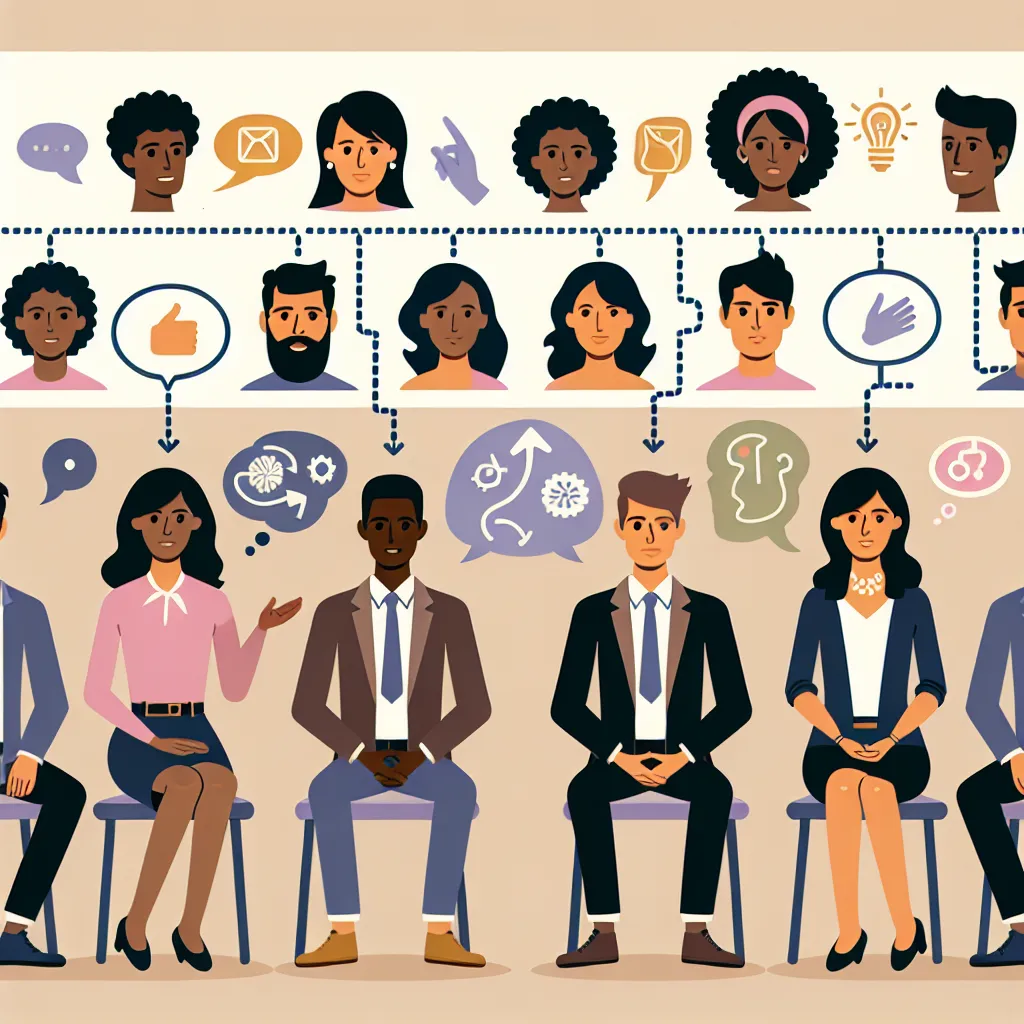Personality and Language: How Traits Influence Communication
Understanding the role of personality in language and communication is pivotal in deciphering the complexities of human interactions. Personal traits have been found to profoundly influence the way individuals express themselves and interact with others. The intertwining of personality and language determines the nuances of communication, making the subject an intriguing area of study for psychologists, linguists, and communication experts alike.
Personality refers to the individual differences in characteristic patterns of thinking, feeling, and behaving. From the perspective of psychology, various models such as the ‘Big Five’ – which includes openness, conscientiousness, extraversion, agreeableness, and neuroticism – illustrate key personality traits. These attributes have a significant impact on the way a person communicates. For instance, an extroverted individual will probably be more talkative and energetic in conversations compared to an introverted person who may prefer listening and thoughtful responses.
Language, on the other hand, is the principal medium through which humans convey ideas, emotions, and information to one another. It encompasses a range of elements including word choice, sentence structure, tone, and body language. In the realm of personality and language, it’s not just what is said that matters, but how it is said.
Extraversion, one of the major personality traits, plays an important role in communication styles. Extraverts often prefer direct and assertive language, and they are known to dominate conversations. They typically use language as a means to express themselves freely and are comfortable with engaging in small talk. On the contrary, introverts tend to use language in a more reserved and measured manner. They are more likely to think before they speak and may rely on carefully chosen words to convey their messages effectively.
Openness, another key personality trait, influences an individual’s willingness to explore new ideas and experiences. This trait is correlated with a rich and varied use of language. People who score high in openness are likely to have a wide vocabulary and use metaphorical language. Such individuals are also more receptive to different forms of communication and are able to appreciate the subtleties of language nuances.
Conscientiousness is associated with being organized, responsible, and mindful. Individuals high in conscientiousness tend to use precise and clear language. They often prefer structured and factual information over abstract or ambiguous communication. Their attention to detail can also reflect in their speech or writing, enabling them to communicate in a well-planned and coherent manner.
Agreeableness is characterized by qualities such as altruism, kindness, and affection. Highly agreeable individuals are likely to use polite and friendly language. They are inclined to focus on maintaining a positive tone in conversations and avoid any form of conflict. This trait also contributes to the use of supportive language and empathy in communication, fostering a respectful dialogue even in challenging situations.
Neuroticism represents the degree to which a person experiences negative emotions like anxiety, anger, and depression. People who score high in neuroticism may communicate using language that conveys their emotional state. Their speech could be laced with worry and uncertainty, and they might often express concerns or seek reassurance through their words.
It’s important to note that communication is not solely based on verbal language. Nonverbal cues such as gestures, facial expressions, and posture are also powerful forms of communication influenced by personality traits. For instance, extroverts may display open body language and use expressive gestures, whereas introverts might have a more closed and composed body posture.
Social media and digital communication have also shaped the way personality influences language use. Individuals might portray themselves differently online than in face-to-face interactions, choosing words and images that align with their desired self-image. The anonymity of online platforms can sometimes lead to more uninhibited forms of communication, allowing for traits that are less visible in physical interactions to take precedence.
Moreover, personality traits influence the language in professional settings. An extroverted leader may use rousing and motivational language to inspire their team, while an agreeable team member might focus on collaborative language to foster group harmony. In customer service, employees with high levels of agreeableness and conscientiousness are likely to use courteous and empathetic language to manage relationships with clients effectively.
Cultural factors also interplay with personality and language. Communication norms vary widely across different cultures, and these norms interact with individual personality traits to create unique communication styles. For example, in cultures that value collectivism and harmony, both innate and acquired personality traits may converge to promote indirect and group-oriented language use.
Personal development and education can lead to changes in the way personality influences language use. Individuals can learn to adapt their natural communication tendencies to better suit different social contexts and goals. Training in emotional intelligence and communication skills can empower people to harness their personality traits in a way that enhances both personal expression and mutual understanding.
Effective communication requires self-awareness and the ability to recognize the personality traits that are present in both ourselves and others. By understanding the influence of personality on language, individuals can navigate social interactions more adeptly and build stronger, more empathetic connections.
In conclusion, personality and language are inextricably linked in shaping human communication. The intricate dance between personality traits and language use emphasizes the importance of considering individual differences when engaging in interpersonal interactions. As we become more attuned to the ways in which personality influences our words and actions, we can strive towards mastering the art of communication to improve our relationships, succeed in our careers, and enhance our overall quality of life.



Leave a Comment